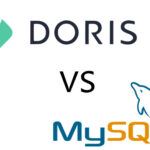PostgreSQL vs MySQL: A Performance Comparison for Database Experts
When you comes to choosing between PostgreSQL and MySQL, two of the most popular open-source relational databases, performance is a crucial factor to consider. In this comprehensive comparison, we’ll delve into the key performance aspects of PostgreSQL and MySQL, empowering you to make informed decisions for your clients.
1. Transactional Performance:
PostgreSQL and MySQL excel in handling transactional workloads, each with its own strengths:
- PostgreSQL: PostgreSQL shines in handling complex transactions with high concurrency. Its ACID (Atomicity, Consistency, Isolation, Durability) compliance ensures data integrity even under heavy workloads.
- MySQL: MySQL excels in handling read-heavy workloads, offering exceptional performance for simple SELECT queries. Its InnoDB storage engine is optimized for throughput, making it ideal for web applications with a high volume of reads.
2. Data Warehousing and Analytics:
When dealing with large datasets and complex analytical queries, PostgreSQL takes the lead:
- PostgreSQL: PostgreSQL’s advanced data types, indexing capabilities, and query optimization techniques make it a powerhouse for data warehousing and analytics. It efficiently handles complex aggregations, joins, and window functions.
- MySQL: MySQL, while capable of handling data warehousing tasks, may struggle with extremely large datasets and intricate analytical queries. Its focus on read-performance may not be ideal for complex data analysis.
3. Scalability and Concurrency:
As your application grows, the ability to handle increasing workloads and concurrent users becomes paramount:
- PostgreSQL: PostgreSQL’s multi-version concurrency control (MVCC) architecture excels in handling high concurrency. It efficiently manages concurrent transactions without compromising performance.
- MySQL: MySQL’s single-version concurrency control (SVCC) architecture can be less efficient under high concurrency, potentially leading to bottlenecks. However, its simplicity makes it lightweight and performant for low to medium concurrency scenarios.
4. Developer Experience and Community:
Both PostgreSQL and MySQL offer robust developer experiences and thriving communities:
- PostgreSQL: PostgreSQL’s extensive SQL support, including advanced features like stored procedures and triggers, makes it a versatile tool for developers. Its active community provides ample support and resources.
- MySQL: MySQL’s widespread adoption and large user base make it a popular choice among developers. Its simplicity and ease of use make it beginner-friendly.
In summary, PostgreSQL emerges as the winner for complex transactional workloads, data warehousing, and high-concurrency scenarios. Its advanced features and robust architecture make it a scalable and reliable choice for enterprise applications. MySQL, on the other hand, excels in read-heavy workloads, web applications, and projects requiring simplicity and ease of use.
Benchmark Results
Query: SELECT UserID, SearchPhrase, COUNT(*) FROM hits GROUP BY UserID, SearchPhrase LIMIT 10;

Query: SELECT SearchPhrase, MIN(URL), COUNT(*) AS c FROM hits WHERE URL LIKE ‘%google%’ AND SearchPhrase <> ” GROUP BY SearchPhrase ORDER BY c DESC LIMIT 10;








Leave a Reply